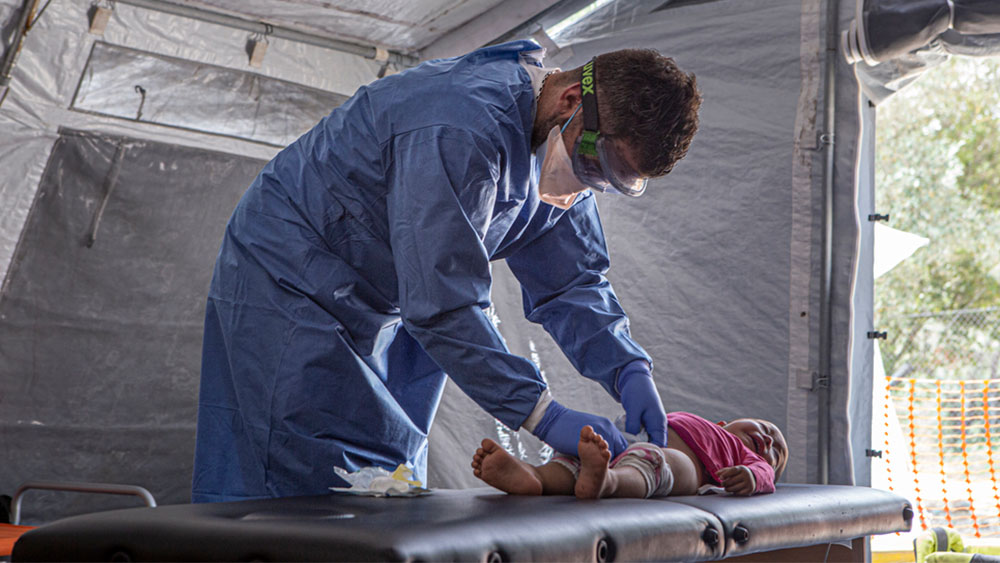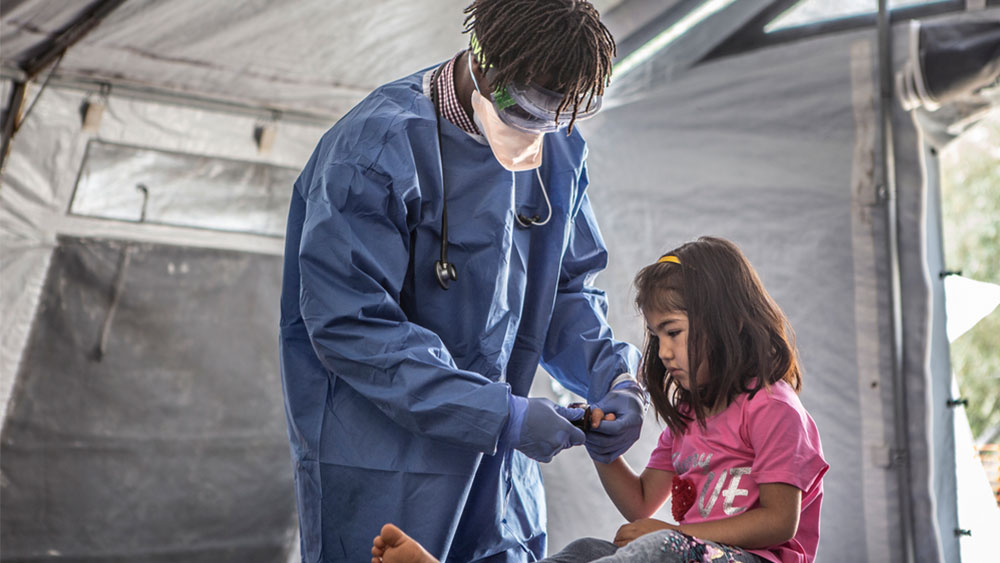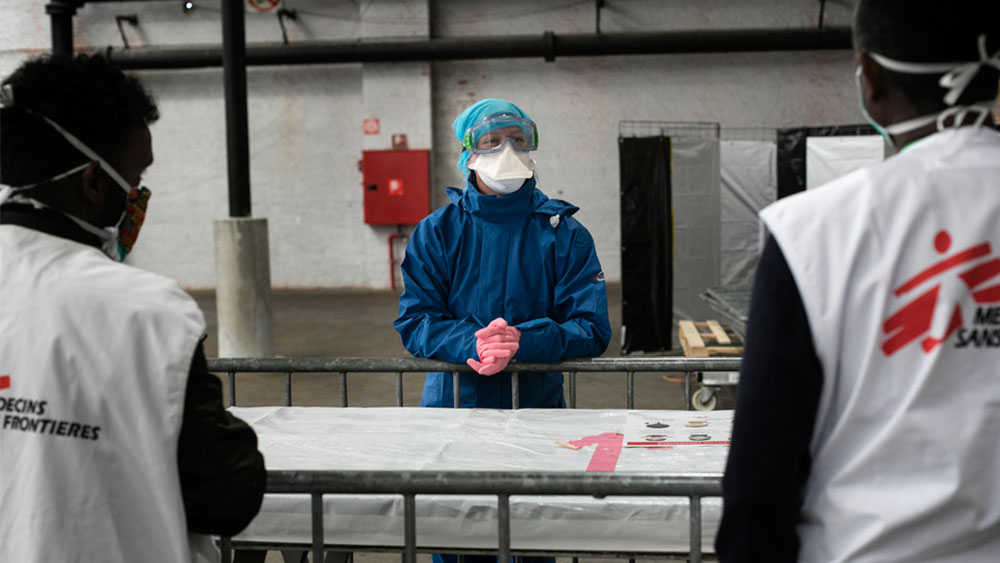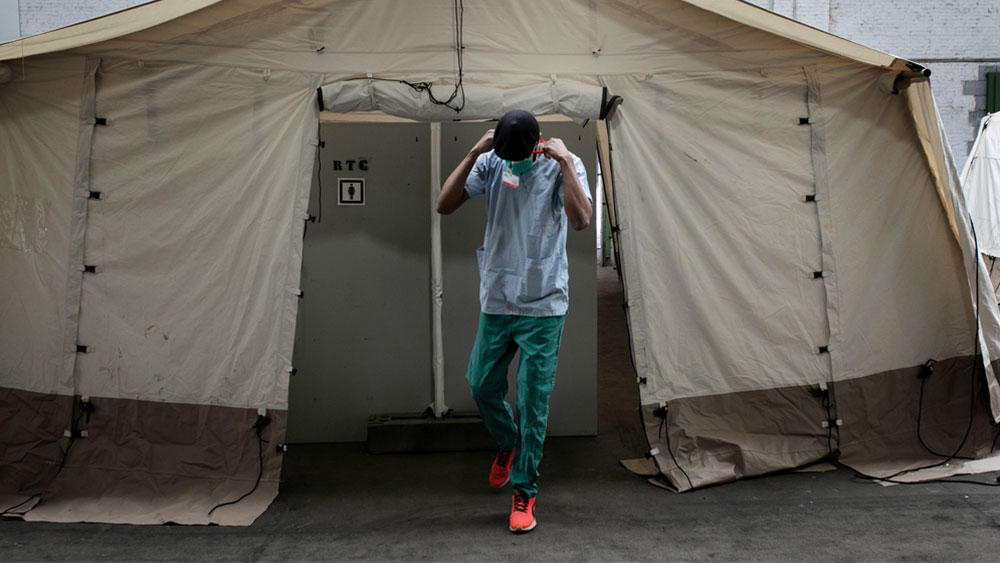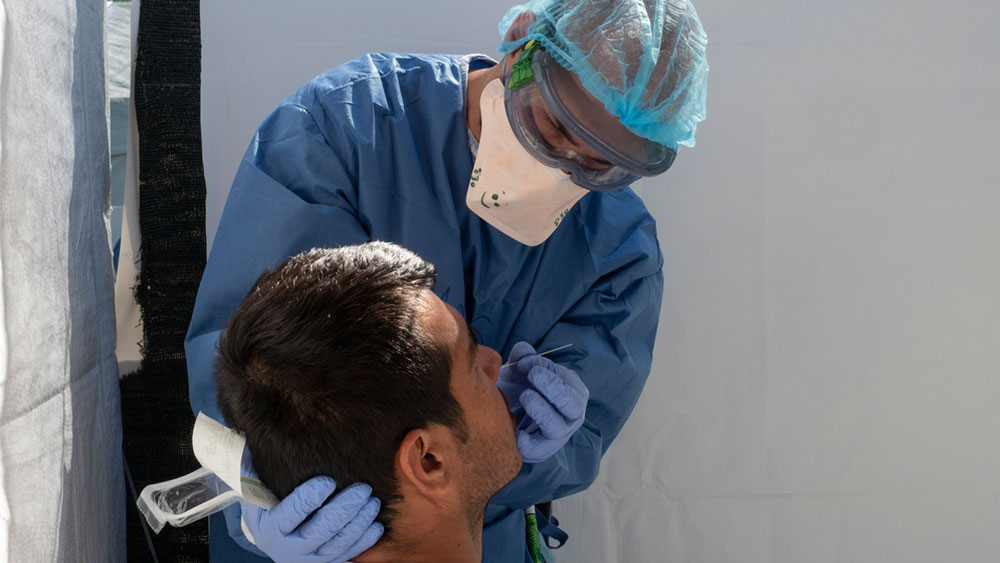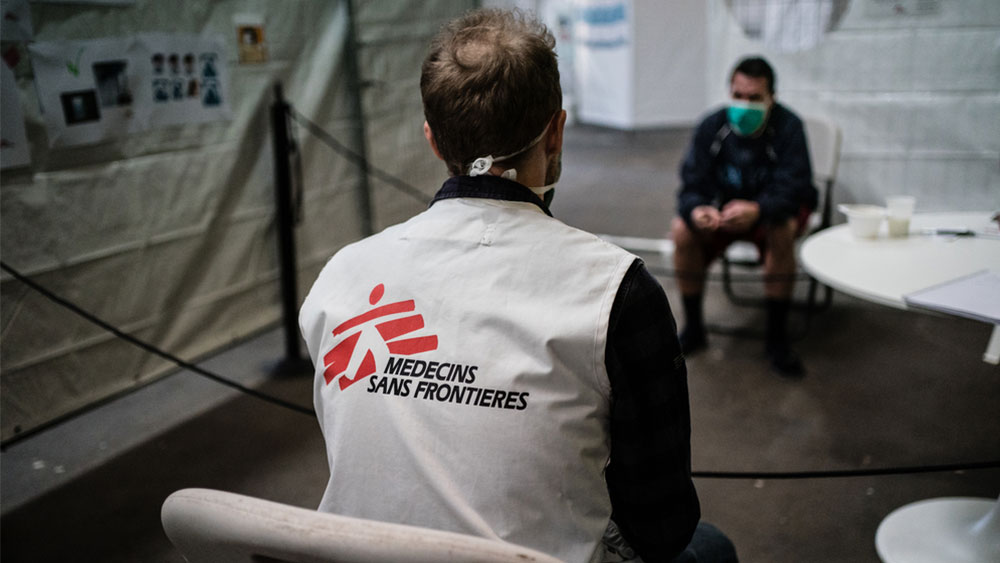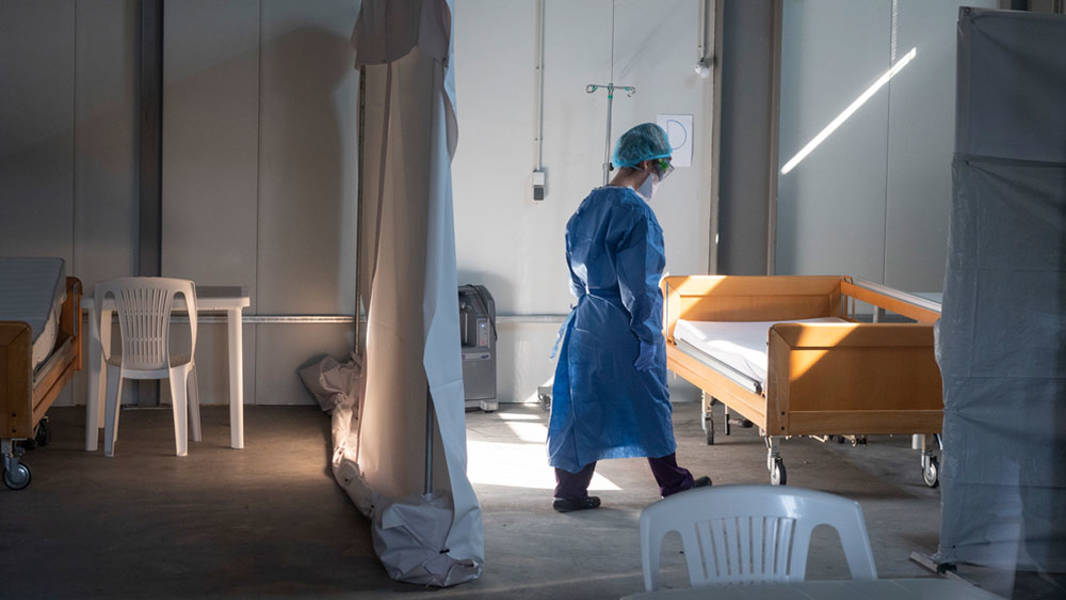
Seeing the Pandemic from the Perspective of Doctors Without Borders and the Patients They Care for in Greece and 70 Οther Countries
Since early 2020, we have been confronted with a new virus, the epidemiology of which we are discovering even as it evolves. A respiratory infection with high rate of transmission has affected a large portion of the population and mobilized government agencies worldwide to impose unprecedented measures. Both advanced and more vulnerable healthcare systems have reached their limits in the face of a pandemic with no clear end date.
But what is it like to deal with the pandemic while living in an overcrowded refugee camp, in a tent or a container, with restrictions on your movement constantly in place since March? How does a medical humanitarian organization such as MSF, with a presence in more than 70 countries around the world, respond, and what challenges does it face?
Frederick’s words reflect the daily experience of thousands asylum seekers in Greece, looking for safety and hope for a better life for themselves and their families. Having persevered through traumatic journeys, they are forced to live in overcrowded camps under very difficult—even inhumane—conditions. Since last March, they have been under a constant state of quarantine extended every two weeks, creating a suffocating living environment and affecting their already strained mental and physical health.
“Before the lockdown, in sessions I mostly heard about the general uncertainty of an asylum seeker’s life. People who asked us for help mostly focused on the future, on their asylum application, on the next steps. What worries them now has much more to do with their daily struggle, their struggle for survival. Restrictions on movement and heightened tensions in the camp have exacerbated an already difficult situation. People do not feel safe. Their access to medical care is limited. This has an impact on their mental health, making their lives even more difficult,” says Kateřina Šrahůlková, a psychologist working at the MSF Pediatric Clinic on the island of Lesvos.
“You and I felt stressed and struggled during the lockdown period. Just imagine how it must be for people who have lived through very traumatic experiences, now that they have to be trapped in a camp—a place where they cannot find safety and tranquility, where they cannot have a private space and need to stand in line for food, to use the toilet, for water, for everything,” adds Grigoris Kavarnos, who works as a psychologist at MSF’s clinic in Mytilene, Lesvos.
The public health measures that we are asked to follow in our daily lives, such as practicing social distancing and frequent hand washing, are impossible to observe in a refugee camp, where a single shower or toilet serves hundreds of people, where people have to wait in line each day for food. The conditions prevailing in a refugee camp create a particularly dangerous context for the spread of the coronavirus.
At the moment, 3,500 asylum seekers are living in the refugee camp in Vathy, Samos, in an area designed to accommodate 648 people, while the new camp in Lesvos hosts 7,000 asylum seekers, of which 2,500 are children.
From MSF’s experience, a successful public health intervention in an epidemic involves a number of interrelated factors: disseminating valid information and cooperating with the local community, ensuring that basic hygiene resources are accessible to all, protecting people who are at increased risk, conducting mass testing, isolating and treating positive cases, contact tracing, and implementing quarantine measures only in places where minimum standards are met and medical monitoring can be provided.
In this context, MSF provided their expertise and experience in dealing with health crises from the outset of the pandemic, both in Greece and globally. In close cooperation with national and local authorities, MSF focused on supporting public health structures to reduce spread of the disease and provide appropriate care to those infected with the virus, with particular emphasis on the most vulnerable and underserved groups. Furthermore, they focused on conducting training on prevention and protection measures, on controlling the occurrence of infection, and on creating special areas for the isolation and care of COVID-19 patients.
In Greece, MSF’s programs have focused on protecting the most vulnerable and sick groups, with emphasis on:
-Controlling and preventing the transmission of the virus though support programs for asylum seekers, refugees, and migrants in Lesvos, Samos, and Athens and implementing virus protection protocols and special training for staff and patients, with an emphasis on high-risk groups (older adults and people with chronic conditions)
-Informing asylum seekers in refugee camps on Lesvos and Samos about preventive and protective measures
-Strengthening water, sanitation, and hygiene resource availability in the camps, for example by providing 80,000 liters of water each day in the camp of Vathy in Samos
-Carrying out information and awareness raising campaigns on COVID-19 protection measures and best practices for civil society organizations
-Supporting the efforts of public authorities, public health structures, and other social actors
At the same time, MSF continues nationwide donations of personal protective equipment to beneficiaries and staff of organizations caring for seniors, people experiencing homelessness, and other vulnerable groups, in constant cooperation with national authorities in order to meet emerging needs.
The Stavros Niarchos Foundation (SNF) supports the MSF COVID-19 Crisis Fund, worldwide. SNF’s grant focuses on programs in Greece, as well as in countries in Africa and the Middle East.
This text was written by Médecins Sans Frontières.
